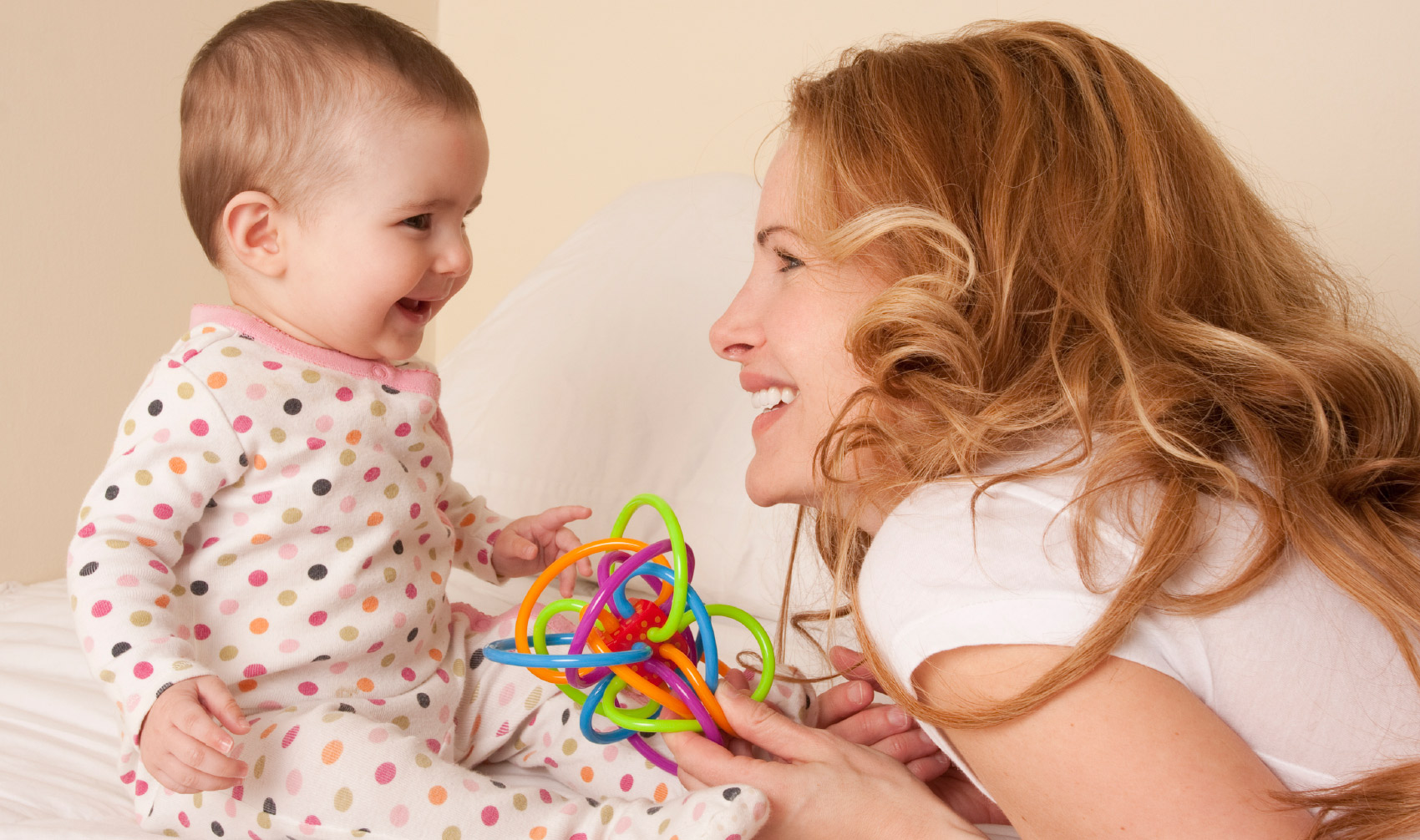
What should I do if I think my baby or child has hearing loss?
First step: consult an audiologist
The best solution is to visit an audiologist as a preventative measure or as soon as you see signs of hearing trouble. This hearing professional will assess the degree of hearing loss and will guide you through the next steps, which may include medical treatment, hearing correction or rehabilitation.
Hearing aids/devices:
Hearing aids help your child connect to their sound environment. Hearing aids are available for babies with severe hearing loss, even if they’re only a few months old!
Cochlear implants:
Cochlear implants may be a good option in cases of severe hearing loss in both ears when traditional hearing aids haven’t been optimal after several months. As opposed to hearing aids, these devices stimulate the cochlea directly with surgically implanted electrodes. Find out more from your audiologist.
Communication strategies:
There are several different communication strategies that help deaf children in their daily lives. These tips can also help parents communicate more clearly with their child. Here are a few:
- Teach the child to always look at the person speaking with him or her.
- Teach the child to ask people to repeat what they said if he or she didn’t understand.
- Parents should get down to the child’s level to speak with their child.
- Reduce background noise or move away from it, since it can make it hard for your child to understand conversation.
Below are several tips to help develop your baby’s language skills:
- React to your baby’s babbling and cooing.
- Imitate the sounds your baby makes and play together making different sounds with the mouth.
- Hum and sing songs and rhymes for and with your child.
- Speak to your child naturally. Talk about what you are doing, what you see, what your child is doing and what he or she sees.
- Give the child toys that make sounds that aren’t too loud.
- Call your child by name.
- Bring your child to new places and into new situations.
- Play with your child.
- Play children’s music or movies for your child.
- Teach your child the names of the people and objects he or she is familiar with.
- Read colourful books and tell your child stories.
- Take the time to listen when your child is speaking to you.
- Encourage him or her to tell stories.
- Congratulate your child when he or she has made an effort to communicate.

